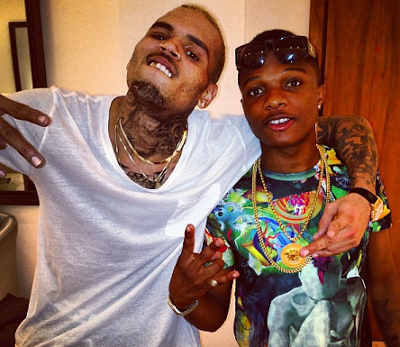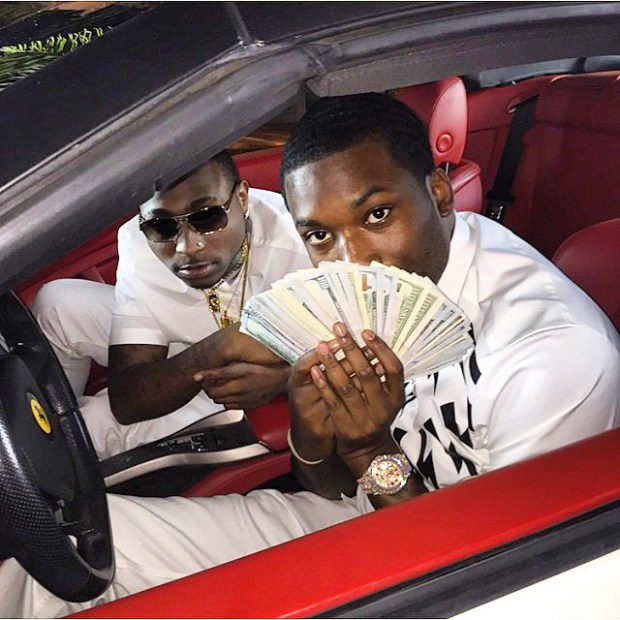Gone are the days when all Africans did was wait on free money from Europe and America to survive; today, the relationship is moving towards that of equal partners. This has been particularly demonstrated in the music industry. This piece is about how Nigerian artists and indeed African artists can do better with their international collaborations.
I might as well digress from the start. I ought not to be the one writing this because for starters, I am not an artist and I am definitely not an expert of the music industry or any industry for that matter. But someone has to say something and I’ve got the microphone now. We have put our super stars in a box where they can hardly share their opinions on an issue without such opinions being deemed as them hating on the successes of others or being condemned as some sort of subliminal. That leaves us in a place where such people would rather keep their thoughts to themselves. In writing this, one sought the opinion of some top artists, all of whom currently have songs on the top ten and one also got the opinion of some soon to be great performers too. Some of their thoughts are crystallized in my own words below.
Gone are the days where the Nigerian or African music consumer is excited about a collabo between our artists and those from across the ocean, mostly from the U.S. Hip-Hop community. We have seen 2face and R-Kelly, we have seen D’Banj and Snoop Dogg, P-Square and Rick Ross, Vector and Movado, Akon and everybody, Davido and Meek Mill and down to the most recent one, Wizzy, Skepta and Drake. Some of the tracks that came off such collaborations came off as great, some just there somewhere above mediocrity and for some others, their place in oblivion will never be threatened. Best forgotten.
This piece is hardly about the art as it is about the business end of such collaborations. Whether the featured artist phones in his/her part of the track or actually gets into the studio to do the recording, at the bottom of each move is the desire to make a name for one self and also cash some money. One for the money!
We can take it from the point of an artist who is already doing great numbers on the continent. When such an artist features say a Jay Z on a new track, the purpose has to then go beyond being recognized or respected on the continent. At the point D’banj and Don Jazzy had Snoop Dogg on Endowed remix, they were arguably bigger on the continent than Snoop was so one cannot claim that the collaboration was to make the then Mo’Hits artists bigger. It raised their street cred no doubt but Snoop Dogg will not make Africans buy an African artist they are already very much into. It did help D’banj’s resume that he had some relationship with Snoop when Kanye West came calling; that feature had bolstered his resume. Akon has been on tracks with WizKid, P-Square, D’Banj, Davido (and others too numerous to mention) and many would probably even consider him some sort of African artist now. But today, virtually all the artists who featured Akon are doing better in African clubs than Akon is. Does featuring Akon boost your resume? Of course yes! Does it add to your popularity in Africa if you are say a P Square or Davido? Not much.
It is a false assumption to think that by featuring T.I. you have broken into the American market. Not that easy except T.I. goes out of his way to put that song on his own album and you are on tour with him to promote the said track. How have featured International artists treated virtually all the collabos with African artists? Like something they’d rather forget as soon as the production was done. You don’t see them tweeting links to the song as they would features with their contemporaries in America. You do not see them big up such tracks on Hot 97 or other respected Hip-Hop platforms in America.
At times, it does feel like a relationship between a guy and a sex worker. You pay for the service, she serves you, and you are out. The hooker does not reference you, your relationship ended after you paid. The sex was nothing but her doing her job. You had fun, she had money! The relationship between our artists and these International acts is not as graphic but anyone who is sincere enough would get the drift; the International artist gets his/her cash, does the motions and is off. No promotion, no sustained acknowledgement on social media and zilch mentions on U.S. radio on television networks.
There is a next step to these transatlantic collaborations. Let me state that we are closer into breaking into the U.S. market today than we were say five years ago. I mean, even Jay Z used Nigeria’s Hip-Hop market to prop up some reputation for his Tidal! So we are close but we could remain close for the next five years and not actually break in if we are just okay with featuring these artists and not looking to cash in on such collabos in the American market.
Collaborations should come with agreements that include expectations on the featured artist’s post-studio work. Why feature an artist who’s got a combined 10 million Twitter, Facebook, Instragram and YouTube fans if such will not sign up to post links to our feature across all those channels on an agreed number of times? Our artists also need to commit the artists to TV and radio mentions. This music business is more of a business today than it is music; is that not why those involved in the business are making more money than most of those making the music?
We are desperate to see a home boy or girl break into the U.S. market. It is more likely to happen via a collabo with an established star (say Rihanna) than with a solo effort. See what the Beyonce feature did to Chimamanda Adichie and Aunty Ngozi no be artist o. Breaking into the U.S. market is one thing, sustaining it is another but we can have that discussion after we break in.
According to PwC, the global music revenue for 2015 is expected to be $48 billion . That is some $18 billion above Nigeria’s average yearly national budget. The U.S. market share of that is $15 billion. Note that revenue is not the same as investment. Our industry is not yet a $1 billion industry . Can we offer the featured artists more than the cash they get paid? We cannot at the moment. The African music industry is still at an inchoate stage at best and the numbers are not juicy enough for an established U.S. artist to want to commit to. The potentials are vast and with increasing Internet penetration, our artists and other stakeholders can start making top dollar from the digital sales of their content. For now, what the International act gets is the cash at hand, but can our artists start making their dollars count beyond being able to say “I have featured several International stars” in an interview to saying on U.S. TV, “I am not a one hit wonder. I have produced several hits in Africa and I am sure I will add more hits to my current track enjoying airplay across America.” It is possible if we start thinking along that line.
Japheth J, Omojuwa is the Editor, @AfricanLiberty_ . This piece was initially published at Nigerian Artists and International Collabos: What’s Next? – @OMOJUWA


